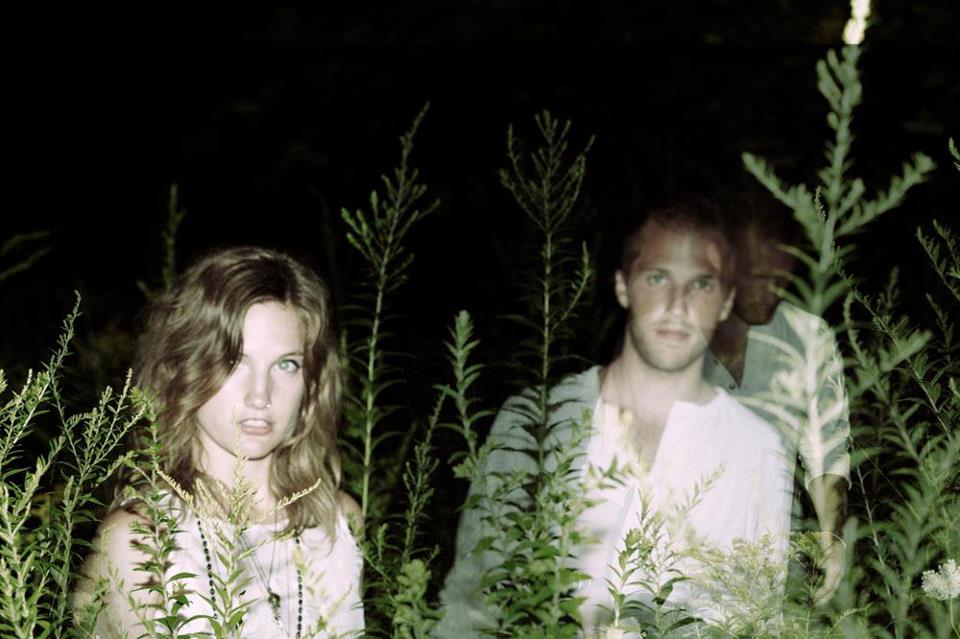Knox is a sister-brother duo from Massachusetts. When I first came across their music I was covering the scene in Bushwick for a local rag, and they were staying in the neighborhood. All their music online was live recordings that were dark, bass heavy, and constantly evolving and changing. It was hard to categorize, and that was great. Their first release saw the pair pull the ideas that floated about in their live show into a clear and polished vision. Since their inclusion on the Good Bread comp, they’ve had a release on BPitch Control and Sister Knox was accepted into Red Bull Music Academy. Below, they talk about how they work together, the importance of surroundings when producing, and what RBMA was like. Buy their stuff and enjoy the atmosphere.
Could you describe what goes on during your live performances?
Knox: We use Ableton live and a series of midi controllers to reconstruct the skeletons and rhythmic aspects of our songs. Each of us have our own live looping and effects capabilities, so we can build swaths of guitar, synth and voice. Our ‘swaths’ are a merging of many different elements—processed loops from improvisations and field recordings taken from our surroundings. We layer, EQ and effect them to get the right kind of movement and tone with the beat.
Our individual roles are more defined for our live shows then when we’re in the studio. When playing live, Eliza provides lead vocals and live looping and effecting of her vocals. She also plays keys and has a sampler for triggering hits and clips. Nic plays guitar and sings backing vocals. In addition, he triggers and effects loops via controllers and midi drum pads.
We have a road map for each of our songs and an over-arching set-list for each live show. There is still a fair amount of room for improvisation within that framework, though. This mostly occurs in the live looped effects and soundscapes. We have an initial idea of what the aesthetic content of each song is, but the supportive production changes each time we play it.
What are your musical backgrounds?
We grew up with a lot of Blues, Rock and R&B. These influences certainly pushed us to explore more experimental mediums, like Jazz and Avant-Garde. We were both Jazz performance majors in college (Nic in Guitar and Eliza in voice).

How do you build tracks together?
We usually start with a loop or textural idea that expands into a larger arrangement. We’re presently living in different states, so we’re constantly sending rough ideas, sketches or beats to the other to elaborate on. This leap-frog process repeats until we both agree that we have something verifiably Knox sounding.
Does where you’re recording affect your music?
It certainly does. We’re from a small, rural town in Central Massachusetts and we recorded our debut release “To Rush, Roar & Murmur” at home, surrounded by dense woods and quiet. Similarly, that EP feels gentle, expansive and sweeping. We’re partly based in New York now and have noticed our music begin to develop a more industrial edge. In the city your sensory field is imprinted quite differently than in the country, there is an abundance of information and activity for your brain to sort. These constricted, frenzied spaces are fun to extract and explore.
How did living in Bushwick influence your music?
Living in Bushwick didn’t so much affect our sound as it allowed us a platform to sound. We were involved with a circuit of basement venues that threw shows every week. These open, experimental environments afforded us a stage to start forming our live set and sculpting a concept and tone. The basement scene was a very active community of musicians. Every week we shared new sounds and ideas. Everyone was eager to learn and supportive of experimentation. There were no rules and as a result a lot of great, uninhibited music was made.
How was your RBMA experience?
Sister Knox: The Red Bull Music Academy was electric and surreal. It was really an honor to be surrounded by so many talented producers and musicians from all over the world. There was such a diversity of style among the participants, which made the experience truly exciting. When you started a session with someone, you had no idea of how it would sound or when it would finish. That openness and surrender helps to create some great material. I collaborated with Grassmass, from Brazil, a lot. On a whim, he invited me to sit in on his set at the Knock Down Center. Our sounds instantly clicked. Since then, we’ve worked on a handful of tracks together.
There were constantly workshops, shows and lectures happening. I attended every lecture and tried to see every show that I could. Among the many terrific and inspiring lectures, some standouts were: Stephen O’Malley, Malcolm Cecil, Bernie Worrell and Nigel Godrich.
Any upcoming projects you’re excited about?
We’re excited about the next two weeks. We set up a temporary studio on Cape Cod to improvise and record as much as possible. We’re also looking forward to playing some live shows this summer in New York and Boston.

